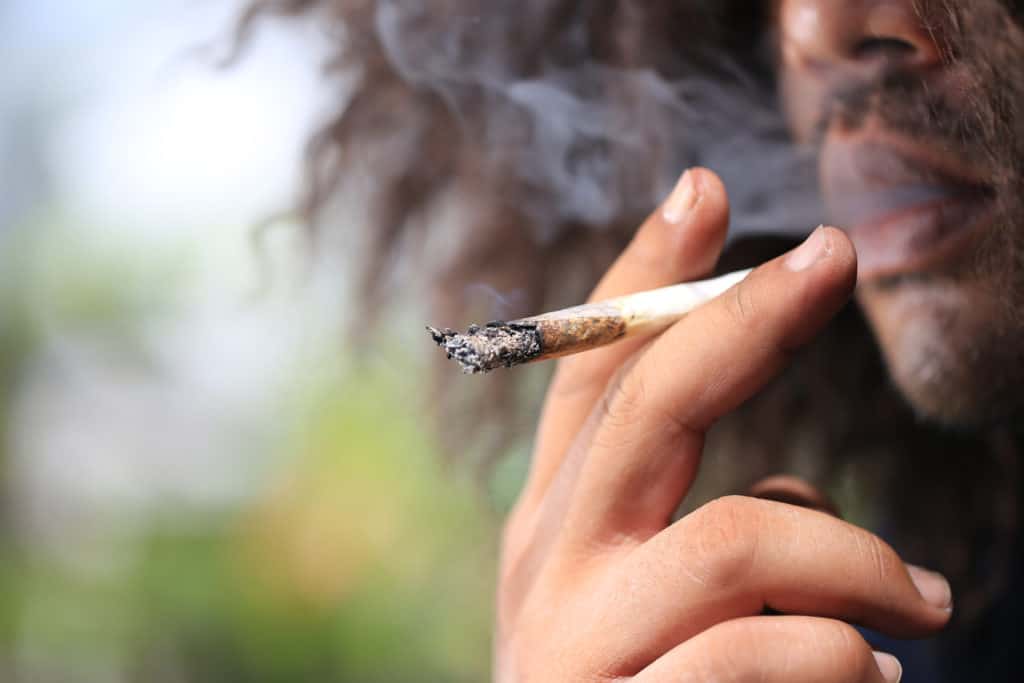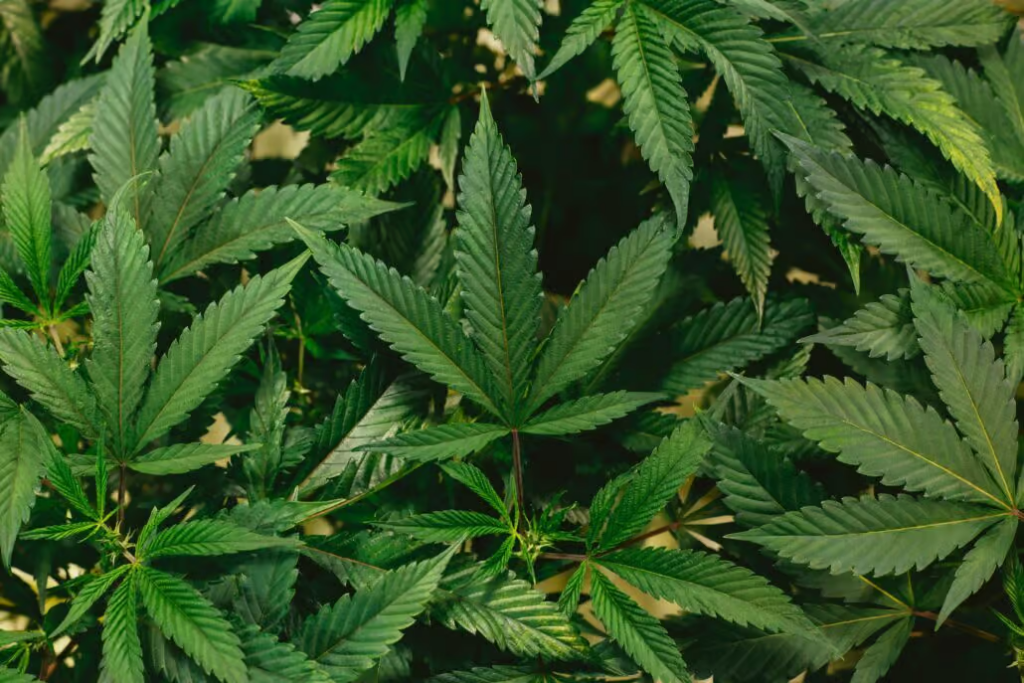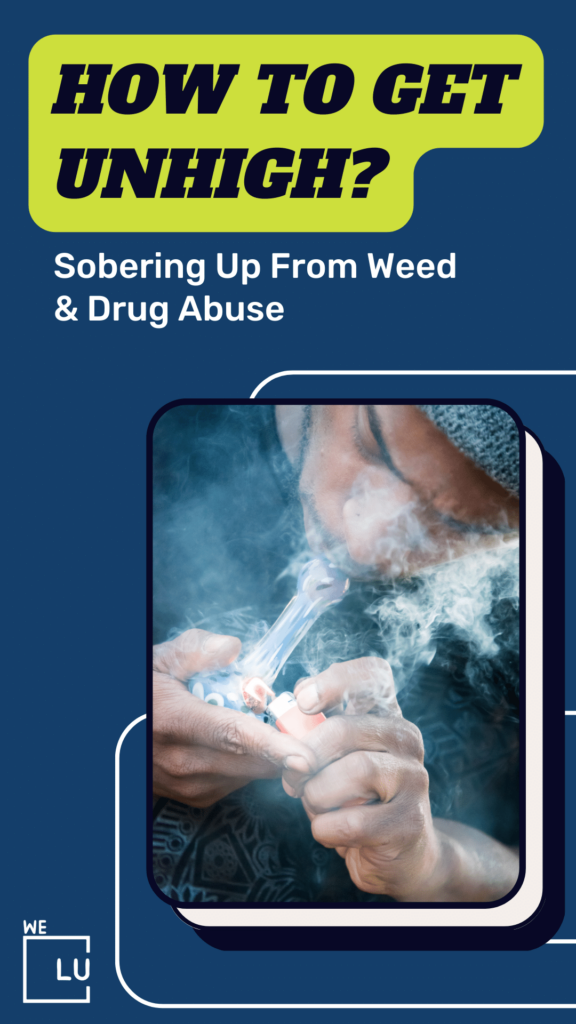How Long Do Weed Highs Last?
The quickest way to get high with weed is to smoke or vape. The effects will be most noticeable after 10 minutes. The high typically lasts one to three hours, although the effects might last up to eight hours. It used to be considerably more difficult to predict How long do weed highs last. Experienced smokers might try to determine the intensity of a bud by looking at it and smelling it. However, relying just on sight and aroma is not an exact science. However, things have gotten a lot easier after stores began advertising the actual THC level of their products. If you are new to cannabis, it is best to start carefully.
Within a few minutes after inhaling marijuana smoke, a person’s heart rate speeds up, the breathing passages relax and become enlarged, and blood vessels in the eyes expand, making the eyes look bloodshot. The heart rate—normally 70 to 80 beats per minute—may increase by 20 to 50 beats per minute or may even double in some cases. Taking other drugs with marijuana can amplify this effect.
Knowing how long do weed highs last will help you organize your day. You might consider timing your high for optimal enjoyment. Or maybe you have something later in the day that you don’t want to be too high for. Furthermore, certain states may have adopted laws legalizing the recreational use of cannabis, but on the federal level, cannabis remains illegal. [1] The federal government classifies cannabis, along with heroin and cocaine, as a Schedule I drug with a high potential for abuse and little to no medical benefit.
Is Weed Addictive?
Yes. Marijuana use can lead to the development of problem use, known as a marijuana use disorder, which takes the form of addiction in severe cases. Recent data suggest that 30% of those who use marijuana may have some degree of marijuana use disorder. People who begin using marijuana before the age of 18 are four to seven times more likely to develop a marijuana use disorder than adults. [2]
Marijuana—also called weed, herb, pot, grass, bud, ganja, Mary Jane, and a vast number of other slang terms—is a greenish-gray mixture of the dried flowers of Cannabis sativa. [3]
Some people smoke marijuana in hand-rolled cigarettes called joints; in pipes, water pipes (sometimes called bongs), or in blunts (marijuana rolled in cigar wraps). Marijuana can also be used to brew tea and, particularly when it is sold or consumed for medicinal purposes, is frequently mixed into foods (edibles) such as brownies, cookies, or candies. Vaporizers are also increasingly used to consume marijuana. Stronger forms of marijuana include sinsemilla (from specially tended female plants) and concentrated resins containing high doses of marijuana’s active ingredients, including honeylike hash oil, waxy budder, and hard amberlike shatter. These resins are increasingly popular among those who use them both recreationally and medically.
The main psychoactive(mind-altering) chemical in marijuana, responsible for most of the intoxicating effects that people seek, is delta-9-tetrahydrocannabinol (THC). The chemical is found in resin produced by the leaves and buds primarily of the female cannabis plant. The plant also contains more than 500 other chemicals, including more than 100 compounds that are chemically related to THC, called cannabinoids.

Pleasant experiences with marijuana are by no means universal. Instead of relaxation and euphoria, some people experience anxiety, fear, distrust, or panic. These effects are more common when a person takes too much, the marijuana has an unexpectedly high potency, or the person is inexperienced. People who have taken large doses of marijuana may have acute psychosis, which includes hallucinations, delusions, and a loss of a sense of personal identity. These unpleasant but temporary reactions are distinct from longer-lasting psychotic disorders, such as schizophrenia, that may be associated with the use of marijuana in vulnerable individuals.

Skip To:
Learn More:
How long do weed highs last? Although detectable amounts of THC may remain in the body for days or even weeks after use, the noticeable effects of smoked marijuana generally last from 1 to 3 hours, and those of marijuana consumed in food or drink may last for many hours.
Marijuana Use Disorder Fact Sheet
Medical Use of Marijuanas Pros and Cons
The potential medicinal properties of marijuana and its components have been the subject of research and heated debate for decades. THC itself has proven medical benefits in particular formulations. The U.S. Food and Drug Administration (FDA) has approved THC-based medications, dronabinol (Marinol®) and nabilone (Cesamet®), prescribed in pill form for the treatment of nausea in patients undergoing cancer chemotherapy and to stimulate appetite in patients with wasting syndrome due to AIDS.
The FDA also approved a CBD-based liquid medication called Epidiolex® for the treatment of two forms of severe childhood epilepsy, Dravet syndrome and Lennox-Gastaut syndrome. It’s being delivered to patients in a reliable dosage form and through a reproducible route of delivery to ensure that patients derive the anticipated benefits. CBD does not have the rewarding properties of THC.
The use of marijuana as medicine also poses other problems such as the adverse health effects of smoking and THC-induced cognitive impairment. Nevertheless, a growing number of states have legalized dispensing of marijuana or its extracts to people with a range of medical conditions.
An additional concern with “medical marijuana” is that little is known about the long-term impact of its use by people with health- and/or age-related vulnerabilities—such as older adults or people with cancer, AIDS, cardiovascular disease, multiple sclerosis, or other neurodegenerative diseases.
Maybe you are wondering “How long do weed highs last?” Some people who use marijuana will develop marijuana use disorder, meaning that they are unable to stop using marijuana even though it’s causing health and social problems in their lives. One study estimated that people who use cannabis have about a 10% likelihood of becoming addicted. [4]
DEA Marijuana/ Cannabis Drug Fact Sheet Publicly Made Available for Substance Use Disorder Awareness
Marijuana Use Statistics
Marijuana is the illicit drug most frequently found in the blood of drivers who have been involved in vehicle crashes, including fatal ones. Two large European studies found that drivers with THC in their blood were roughly twice as likely to be culpable for a fatal crash than drivers who had not used drugs or alcohol.
However, the role played by marijuana in crashes is often unclear because it can be detected in body fluids for days or even weeks after intoxication and because people frequently combine it with alcohol. Those involved in vehicle crashes with THC in their blood, particularly higher levels, are three to seven times more likely to be responsible for the incident than drivers who had not used drugs or alcohol. The risk associated with marijuana in combination with alcohol appears to be greater than that for either drug by itself. [5]
59.3 Million
More than 59.3 million people 12 or older used illicit drugs in the past year, including 49.6 million who used marijuana.
Source: SAMHSA
4.0 Million
In 2015, about 4.0 million people in the United States met the diagnostic criteria for a marijuana use disorder. 138,000 voluntarily sought treatment for their marijuana use.
Source: NIDA
3 in 10
One study estimated that approximately 3 in 10 people who use marijuana have marijuana use disorder.
Source: CDC

Get Your Life Back
Find Hope & Recovery. Get Safe Comfortable Detox, Addiction Rehab & Dual Diagnosis High-Quality Care.
Hotline(844) 597-1011Common Risks & Negative Effects of Cannabis
Like tobacco smoke, marijuana smoke is an irritant to the throat and lungs and can cause a heavy cough during use. It also contains levels of volatile chemicals and tar that are similar to tobacco smoke, raising concerns about the risk for cancer and lung disease. Marijuana smoking is associated with large airway inflammation, increased airway resistance, and lung hyperinflation, and those who smoke marijuana regularly report more symptoms of chronic bronchitis than those who do not smoke.
Several studies have linked marijuana use to increased risk for psychiatric disorders, including psychosis (schizophrenia), depression, anxiety, and substance use disorders, but whether and to what extent it actually causes these conditions is not always easy to determine. Recent research suggests that smoking high-potency marijuana every day could increase the chances of developing psychosis by nearly five times compared to people who have never used marijuana.
The amount of drug used, the age at first use, and genetic vulnerability have all been shown to influence this relationship. The strongest evidence to date concerns links between marijuana use and psychiatric disorders in those with a preexisting genetic or other vulnerability. [6]
Below are often reported co-occurring symptoms/disorders with chronic marijuana use. However, research has not yet determined whether marijuana is causal or just associated with these mental problems.
Acute (Present During Intoxication)
- Impaired short-term memory
- Impaired attention, judgment, and other cognitive functions
- Impaired coordination and balance
- Increased heart rate
- Anxiety, paranoia
- Psychosis (uncommon)
Persistent (Lasting Longer Than Intoxication, But May Not Be Permanent)
- Impaired learning and coordination
- Sleep problems
Long-Term (Cumulative Effects of Repeated Use)
- Potential for marijuana addiction
- Impairments in learning and memory with the potential loss of IQ*
- Increased risk of chronic cough, bronchitis
- Increased risk of other drug and alcohol use disorders
- Increased risk of schizophrenia in people with genetic vulnerability**
How long do weed highs last? A cannabis high can last anywhere from 2 to 10 hours, depending on a range of factors. These include:
- How much you consume
- How much tetrahydrocannabinol (THC) it contains
- Your body weight and body fat percentage
- Your metabolism
- Whether or not you’ve eaten
- Your tolerance
First-class Facilities & Amenities
World-class High-Quality Addiction & Mental Health Rehabilitation Treatment
Rehab Centers TourRenowned Addiction Centers. Serene Private Facilities. Inpatient rehab programs vary.
Addiction Helpline(844) 597-1011Proven recovery success experience, backed by a Team w/ History of:
15+
Years of Unified Experience
100s
5-Star Reviews Across Our Centers
10K
Recovery Success Stories Across Our Network
- Low Patient to Therapist Ratio
- Onsite Medical Detox Center
- Comprehensive Dual-Diagnosis Treatment
- Complimentary Family & Alumni Programs
- Coaching, Recovery & Personal Development Events
Weed Addiction
Marijuana use disorders are often associated with dependence—in which a person feels withdrawal symptoms when not taking the drug. People who use marijuana frequently often report irritability, mood, sleep difficulties, decreased appetite, cravings, restlessness, and/or various forms of physical discomfort that peak within the first week after quitting and last up to 2 weeks. Marijuana dependence occurs when the brain adapts to large amounts of the drug by reducing the production of and sensitivity to its own endocannabinoid neurotransmitters.
Marijuana use disorder becomes an addiction when the person cannot stop using the drug even though it interferes with many aspects of his or her life.
Estimates of the number of people addicted to marijuana are controversial, in part because epidemiological studies of substance use often use dependence as a proxy for addiction even though it is possible to be dependent without being addicted. Those studies suggest that 9% of people who use marijuana will become dependent on it, rising to about 17% in those who start using it in their teens.
Some research suggests that marijuana use is likely to precede the use of other licit and illicit substances and the development of addiction to other substances.
For instance, a study using longitudinal data from the National Epidemiological Study of Alcohol Use and Related Disorders found that adults who reported marijuana use during the first wave of the survey were more likely than adults who did not use marijuana to develop an alcohol use disorder within 3 years; people who used marijuana and already had an alcohol use disorder at the outset were at greater risk of their alcohol use disorder worsening. Marijuana use is also linked to other substance use disorders including nicotine addiction. [7]
How long do weed highs last? In general, the impact lasts around 10 minutes to half an hour after smoking cannabis, but if you smoke a lot, you may feel stoned for several hours. When you consume cannabis, the peak effects can continue for 2 to 4 hours, and the effects may linger for a few more hours before wearing off entirely.

World-class, Accredited, 5-Star Reviewed, Effective Addiction & Mental Health Programs. Complete Behavioral Health Inpatient Rehab, Detox plus Co-occuring Disorders Therapy.
CALL(844) 597-1011End the Addiction Pain. End the Emotional Rollercoaster. Get Your Life Back. Start Drug, Alcohol & Dual Diagnosis Mental Health Treatment Now. Get Free No-obligation Guidance by Substance Abuse Specialists Who Understand Addiction & Mental Health Recovery & Know How to Help.
Weed Addiction Symptoms
How long do weed high last? Some people who have marijuana use disorder may need to use more and more marijuana or greater concentrations of marijuana over time to experience a “high.” The greater the amount of tetrahydrocannabinol (THC) in marijuana (in other words, the concentration or strength), the stronger the effects the marijuana may have on the brain. The amount of THC in marijuana has increased over the past few decades.
The following are signs of marijuana use disorder:
- Using more marijuana than intended
- Trying but failing to quit using marijuana
- Spending a lot of time using marijuana
- Craving marijuana
- Using marijuana even though it causes problems at home, school, or work
- Continuing to use marijuana despite social or relationship problems.
- Giving up important activities with friends and family in favor of using marijuana.
- Using marijuana in high-risk situations, such as while driving a car.
- Continuing to use marijuana despite physical or psychological problems.
- Needing to use more marijuana to get the same high.
- Experiencing withdrawal symptoms when stopping marijuana use.
People who have marijuana use disorder may also be at a higher risk of other negative consequences, such as problems with attention, memory, and learning.
How long do weed highs last? How quickly you feel the effects mostly depends on your method of use.
- Smoking or vaping. You can begin to feel the effects of cannabis within 2 to 10 minutes. It kicks in quickly because it enters your bloodstream via your lungs within minutes of inhaling it.
- Eating. Your digestive system metabolizes pot when you eat it, which can take a while. Edibles usually kick in within 30 to 60 minutes, but can sometimes take as long as 2 hours.
- Dabbing. With this method, a highly concentrated form of marijuana is smoked through a special pipe. Dabs have a higher THC content than other forms of cannabis, so the high kicks in almost instantly.
Get Help. Get Better. Get Your Life Back.
Searching for Accredited Drug and Alcohol Rehab Centers Near You?
Even if you have failed previously and relapsed, or are in the middle of a difficult crisis, we stand ready to support you. Our trusted behavioral health specialists will not give up on you. When you feel ready or just want someone to speak to about therapy alternatives to change your life call us. Even if we cannot assist you, we will lead you to wherever you can get support. There is no obligation. Call our hotline today.
(844) 597-1011Weed Addiction Rehab
Marijuana use disorders appear to be very similar to other substance use disorders, although the long-term clinical outcomes may be less severe. On average, adults seeking treatment for marijuana use disorders have used marijuana nearly every day for more than 10 years and have attempted to quit more than six times.
People with marijuana use disorders, especially young adults, often also suffer from other psychiatric disorders (comorbidity). They may also use or be addicted to other substances, such as cocaine or alcohol. Available studies indicate that effectively treating the mental health disorder with standard treatments involving medications and behavioral therapies may help reduce marijuana use, particularly among those involved with heavy use and those with more chronic mental disorders. The following behavioral treatments have shown promise:
- Cognitive-Behavioral Therapy: A form of psychotherapy that teaches people strategies to identify and correct problematic behaviors in order to enhance self-control, stop drug use, and address a range of other problems that often co-occur with them.
- Contingency Management: A therapeutic management approach based on frequent monitoring of the target behavior and the provision (or removal) of tangible, positive rewards when the target behavior occurs (or does not).
- Motivational Enhancement Therapy: A systematic form of intervention services designed to produce rapid, internally motivated change; the therapy does not attempt to treat the person, but rather mobilize his or her own internal resources for change and engagement in treatment.

How To Get Unhigh?
How long do weed highs last and how to get unhigh faster? There is no absolute technique to swiftly recover from excessive cannabis and drug use. The effects will just go away with time. However, there are some ways you may employ to make yourself more comfortable while you wait.
No medications are currently available to treat marijuana use disorder, but behavioral support has been shown to be effective. Examples include therapy and motivational incentives (providing rewards to patients who remain drug-free). Continuing research may lead to new medications that help ease withdrawal symptoms, block the effects of marijuana, and prevent relapse.
THC edibles may seem harmless, but you can become addicted to them, the same goes for weeds and other drugs of abuse. How long do weed highs last? Weeds and edibles take longer to exert their effects, while the “high” lasts longer. This can pose a risk for a person who may take more than intended, consequently experiencing adverse effects. If you or a loved one are struggling with substance abuse and a co-occurring mental health condition such as anxiety and depression, contact one of our helpful treatment specialists today. The We Level Up treatment center can provide information on dual diagnosis and detox programs that may fit your specific needs.
Call today to speak with one of our treatment specialists. We will help you explore treatment options. Your call is private and confidential, and there is never any obligation.
Top 3 How Long Do Weed Highs Last? FAQs
-
How long does a THC high last?
How long do weed highs last? In general, the impact lasts around 10 minutes to half an hour after smoking cannabis, but if you smoke a lot, you may feel stoned for several hours. When you consume cannabis, the peak THC effects can continue for 2 to 4 hours, and the effects may linger for a few more hours before wearing off entirely.
-
How long does a edible high last?
Edibles are food items, usually sweet treats, made from or containing cannabis. The intoxicating effects or “high” of edible cannabis do not kick in for 30 minutes to two hours and peak after four hours. The effects can remain for up to 12 hours after usage, and the residual effects can last for up to 24 hours, so you could be impacted all day.
-
How long does a CBD high last?
How long do weed highs last? It depends on your body, how much you take, and how you take it. But generally, the effects of CBD can last from 2 to 6 hours. CBD is a chemical found in marijuana. CBD doesn’t contain tetrahydrocannabinol (THC), the psychoactive ingredient found in marijuana that produces a high.
Experience Transformative Recovery at We Level Up Treatment Centers.
See our authentic success stories. Get inspired. Get the help you deserve.
Start a New Life
Begin with a free call to an addiction & behavioral health treatment advisor. Learn more about our dual-diagnosis programs. The We Level Up Treatment Center Network delivers recovery programs that vary by each treatment facility. Call to learn more.
- Personalized Care
- Caring Accountable Staff
- World-class Amenities
- Licensed & Accredited
- Renowned w/ 100s 5-Star Reviews
We’ll Call You
Search We Level Up How Long Do Weed Highs Last? Detox, Mental Health Topics & Resources
Sources
[1] Recently Adopted Cannabis Legalization Laws – National Institute on Alcohol Abuse and Alcoholism Available from: https://alcoholpolicy.niaaa.nih.gov/recently-adopted-cannabis-legalization-laws In relation to the topic: “How long do weed highs last?”
[2] Is marijuana addictive? – National Institute on Drug Abuse (NIDA) Available from: https://nida.nih.gov/publications/research-reports/marijuana/marijuana-addictive
[3-5] What is marijuana? – National Institute on Drug Abuse (NIDA) In relation to the topic: “How long do weed highs last?”
[4] Addiction (Marijuana or Cannabis Use Disorder) – Centers for Disease Control and Prevention (CDC)
[6] Campolongo P, Trezza V, Cassano T, et al. Perinatal exposure to delta-9-tetrahydrocannabinol causes enduring cognitive deficits associated with alteration of cortical gene expression and neurotransmission in rats. Addict Biol. 2007;12(3-4):485-495. doi:10.1111/j.1369-1600.2007.00074.x In relation to the topic: “How long do weed highs last?”
[7] Weinberger AH, Platt J, Goodwin RD. Is cannabis use associated with an increased risk of onset and persistence of alcohol use disorders? A three-year prospective study among adults in the United States. Drug Alcohol Depend. February 2016. doi:10.1016/j.drugalcdep.2016.01.014 In relation to the topic: “How long do weed highs last?”
[8] Know the Risks of Marijuana – Substance Abuse and Mental Health Services Administration (SAMHSA) In relation to the topic: “How long do weed highs last?”
[9] National Academies of Sciences, Engineering, and Medicine; Health and Medicine Division; Board on Population Health and Public Health Practice; Committee on the Health Effects of Marijuana: An Evidence Review and Research Agenda. The Health Effects of Cannabis and Cannabinoids: The Current State of Evidence and Recommendations for Research. Washington (DC): National Academies Press (US); 2017 Jan 12. 3, Cannabis: Prevalence of Use, Regulation, and Current Policy Landscape. Available from: https://www.ncbi.nlm.nih.gov/books/NBK425763/
[10] FDA Regulation of Cannabis and Cannabis-Derived Products, Including Cannabidiol (CBD) – Food & Drug Administration





